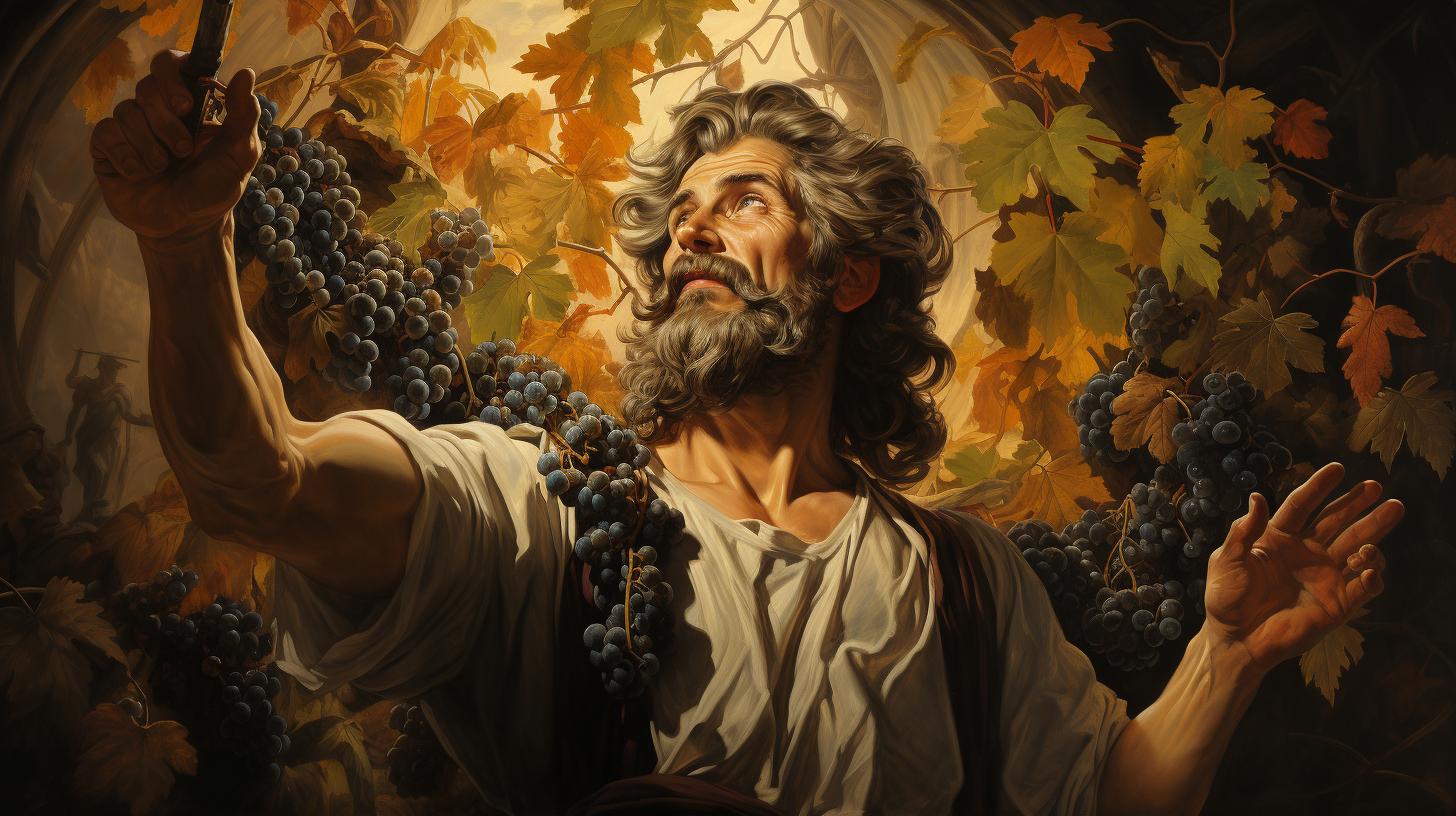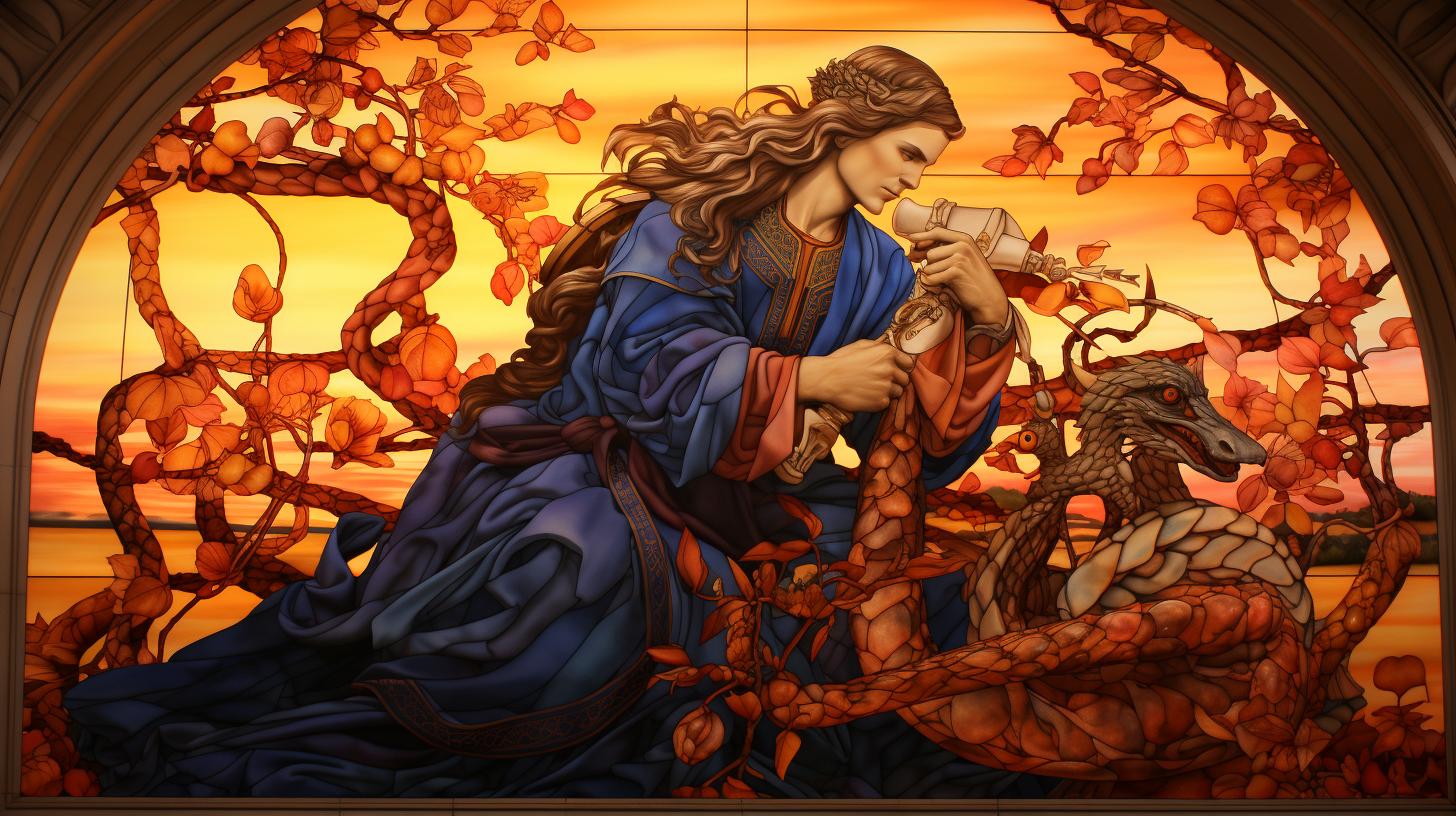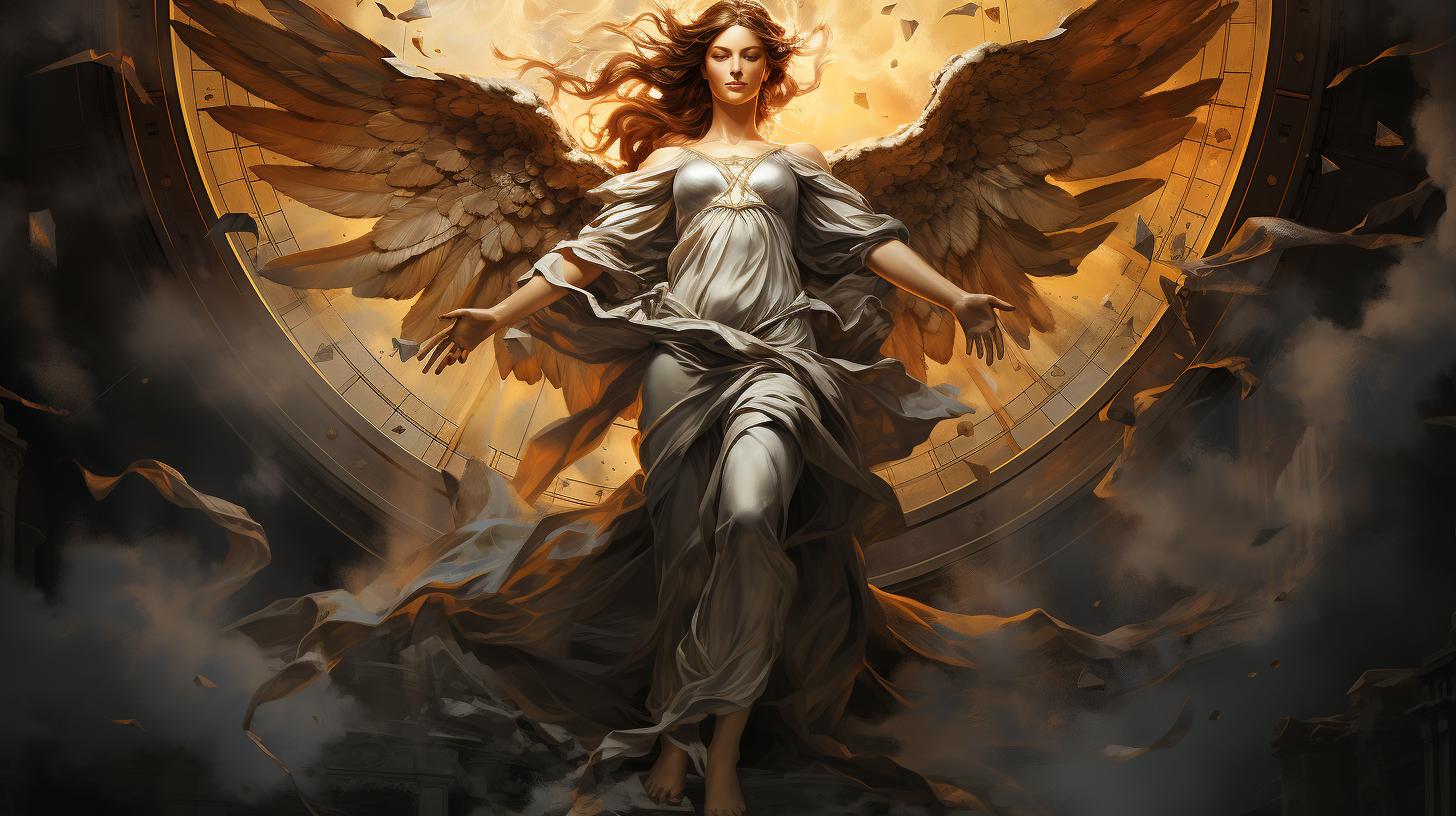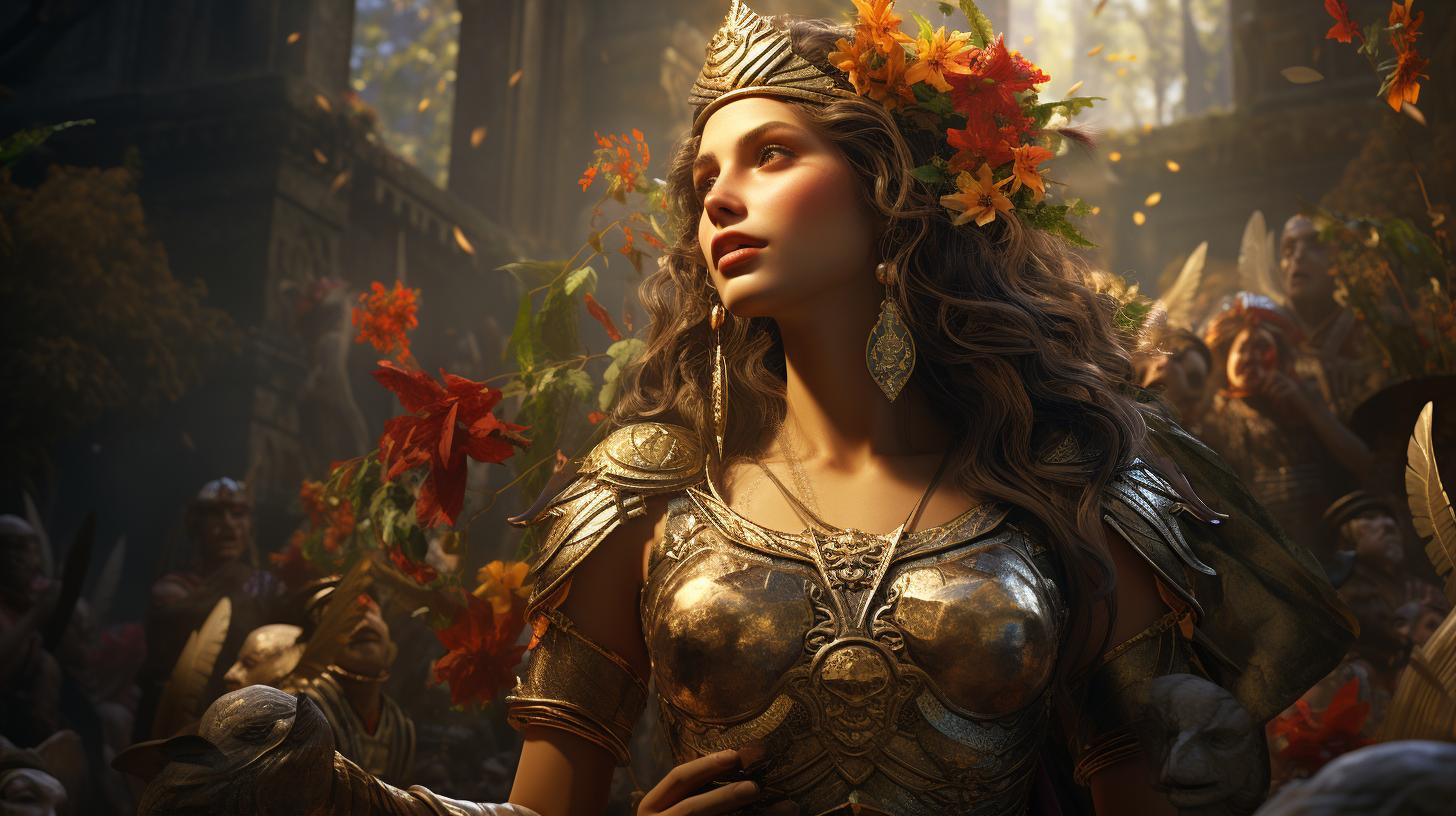Roman God Liber: Exploring the Patron Deity of Freedom and Fertility
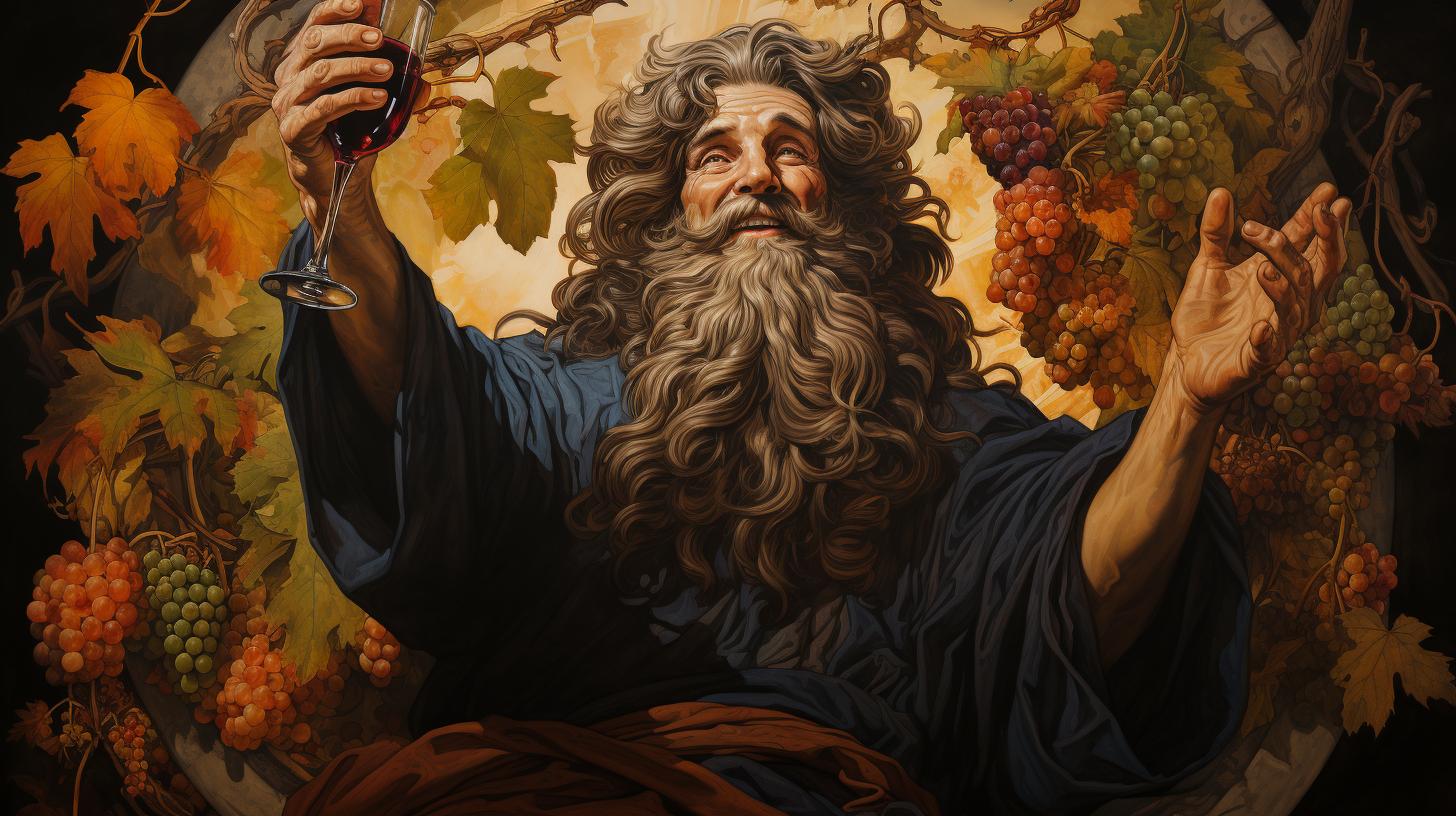
The Roman god Liber, also known as Liber Pater, is a significant deity in Roman religion and mythology. Associated with viticulture, wine, masculine fertility, and freedom, Liber holds a special place as the patron god of the plebeians in Rome.
The Liberalia festival, celebrated on March 17th, focuses on expressions of freedom and rights acquired upon reaching adulthood. Liber’s origins trace back to ancient Italian fertility cults with Ceres and Libera, gradually assimilating with the Greek god Dionysus/Bacchus. Liber’s cults, both official and unofficial, played a role in Roman religious practices, while controversial Bacchanalia cults faced persecution in the Roman Republic.
The Origins and History of Roman God Liber
The ancient Roman god Liber has a rich history rooted in Roman religion and mythology. This deity holds significance in various aspects of Roman society, including fertility, wine, and freedom. Let’s explore the origins and development of Liber’s worship and his association with important themes in Roman culture.
Liber in Ancient Roman Religion
Within the religious beliefs and practices of ancient Rome, Liber played a prominent role as a god associated with vegetation and fertility. He was revered for his influence over the growth of crops and agricultural abundance.
This connection with fertility made Liber a highly important figure in Roman agricultural rituals, particularly those related to viticulture.
Liber’s Association with Fertility and Wine
One of the central aspects of Liber’s domain was his association with the cultivation of grapevines and the production of wine. The Romans believed that the success of their vineyards and the quality of the wine were directly influenced by Liber.
This connection between Liber and viticulture established him as a deity invoked by vintners and wine enthusiasts seeking bountiful harvests and delicious wines.
Liber: Patron Deity of the Plebeians
Liber held a special place as the patron deity of the plebeians in Rome, representing the interests and aspirations of the common people. In a society with stark social divisions, Liber symbolized liberty and freedom, advocating for the rights of the plebeians.
His inclusion in the Tríada del Aventino underscored his status as a protective deity for the plebeian class, offering them guidance and support.
Throughout Roman history, Liber’s cult evolved, assimilating elements from Greek mythology, particularly with the god Dionysus/Bacchus. This assimilation further expanded Liber’s influence and solidified his position as an essential deity in the Roman pantheon.
As we delve deeper into Liber’s significance, we will explore the celebratory festival of Liberalia and the relationship between Liber and the deities Ceres and Libera. Join us in uncovering the captivating history and mythology surrounding this fascinating Roman god.
The Festival of Liberalia: Celebrating Freedom and Rights
The Festival of Liberalia holds immense significance in the Roman culture, as it commemorates the ideals of freedom and the attainment of rights. This ancient festival, observed on the 17th of March, has deep roots in Roman history and traditions, offering a unique glimpse into the societal values of the time.
Throughout the festivities, various activities and traditions take place, intertwining with the concept of coming of age.
Significance and Origins of the Liberalia Festival
The Liberalia Festival carries great importance as it symbolizes the celebration of liberty and the rights gained upon reaching adulthood in Roman society. Its origins can be traced back to ancient customs and beliefs surrounding the transition from adolescence to adulthood.
The festival stands as a testament to the Romans’ belief in the fundamental human rights and the acknowledgment of individuals’ autonomy.
Activities and Traditions during the Liberalia Festival
- Offering of first fruits: It is customary for participants to bring offerings of the first fruits of the season to honor Liber and express gratitude for the abundance provided by the land.
- Processions and revelry: Elaborate processions flood the streets, with people adorned in vibrant attire, singing and dancing in celebration.
Music and merry-making fill the air as individuals express their joy and revel in the spirit of freedom.
- The ritual of Liber Pater: Priests conduct rituals and make offerings at the temples dedicated to Liber.
These rites are believed to invoke the god’s blessings and ensure a fruitful and abundant year ahead.
Relationship between Liberalia and Coming of Age
The Liberalia Festival is closely intertwined with the concept of coming of age in Roman society. As adolescents transitioned into adulthood, this festival served as a recognition of their new status and the rights they acquired.
It marked the moment when individuals were bestowed the freedom to participate fully in civic life, express their opinions, and actively contribute to society. The Liberalia Festival provided a favorable backdrop for these young Romans to embrace their newfound responsibilities and exercise their rights as Roman citizens.
Liber’s Relationship with Ceres and Libera
Liber, before being officially adopted as a Roman god, had connections with two goddesses in pre-Roman fertility cults: Ceres and Libera. These cults worshipped various deities associated with fertility, agriculture, and abundance.
Liber’s presence in these cults emphasized the importance of fertility and its connection to viticulture and wine production.
Liber’s Pre-Roman Cults with Ceres and Libera
In ancient Italian cults, Liber was often portrayed as a companion to Ceres, the goddess of agriculture. Together, they represented the life cycle of nature, from the planting and growth of crops to the celebration of the harvest.
This partnership showcased the interdependent relationship between viticulture, agriculture, and the abundance of the earth.
Additionally, Liber was also associated with Libera, a goddess sometimes considered the female counterpart of Liber.
Libera represented the female aspect of fertility and was revered as a goddess of growth, springtime, and rebirth. The trio of Liber, Ceres, and Libera highlighted the importance of both masculine and feminine energies in the cycles of nature and the abundance of the land.
Assimilation of Liber with Greek Deity Dionysus/Bacchus
As Roman culture evolved and interacted with Greek civilization, Liber became increasingly assimilated with the Greek god Dionysus, known as Bacchus in Roman mythology. Dionysus, beloved for his association with wine, revelry, and ecstasy, shared many similarities with Liber in terms of themes and attributes.
Through this assimilation, Liber absorbed various aspects of Dionysus, reflecting the influence of Greek culture on Roman religious practices. The fusion of Liber and Dionysus resulted in a merging of wine-related festivities, fertility rituals, and the celebration of freedom.
- The blending of Liber and Dionysus/Bacchus led to the adoption of Dionysian elements, such as ecstatic processions, wild celebrations, and theatrical performances, in Liber’s worship.
- Liber’s association with Dionysus/Bacchus expanded the mythological narratives associated with Liber, incorporating stories of Dionysus’ adventures and his connection to the grape harvest.
- Iconographically, Liber began to embody the ecstatic and joyous aspects traditionally associated with Dionysus, featuring attributes such as thyrsus (a staff topped with a pinecone), a crown of ivy leaves, and grapevines.
The assimilation of Liber with Dionysus/Bacchus demonstrated Rome’s openness to adopting and adapting deities and customs from other cultures, resulting in a rich and complex religious tapestry that combined indigenous and foreign elements.
Cults and Worship Practices of Liber
The cults and worship practices surrounding the Roman god Liber played a significant role in the religious landscape of the Roman Republic. Both official and unofficial cults dedicated to Liber existed, showcasing the diverse ways in which the deity was venerated and honored.
Official and Unofficial Liber Cults in the Roman Republic
Within the Roman Republic, Liber had official cults that were recognized and supported by the state. These cults, often associated with the plebeian class, held an important place within Roman society.
They involved rituals, processions, and sacrifices that were performed in temples dedicated to Liber, such as the temple on the Aventine Hill.
Alongside the official cults, there were also unofficial Liber cults that were more grassroots in nature.
These cults emerged from the devotion and reverence of the common people towards Liber. They often involved private rituals, household worship, and smaller sanctuaries dedicated to the deity. These unofficial cults allowed individuals to express their personal connection with Liber and seek divine guidance.
Bacchanalia: The Controversial Cults of Dionysus/Liber
While Liber’s cults were generally accepted and supported, the Bacchanalia cults associated with Dionysus/Liber faced controversy and scrutiny in the Roman Republic. The Bacchanalia, influenced by Greek Dionysian practices, involved wild and ecstatic rituals, including frenzied dancing, intoxication, and sexual freedom.
As these Bacchanalian cults gained popularity, they raised concerns among the Roman authorities. The excessive and secretive nature of their rituals, combined with reports of immoral behavior, led to suspicions of subversion and threats to public order.
In 186 BCE, the Senate issued a decree, known as the Senatus consultum de Bacchanalibus, which banned and suppressed the Bacchanalia.
This prohibition aimed to restore order and preserve the traditional values of the Roman society.
It limited the scope of Dionysian worship, distancing it from Liber’s mainstream cults. Despite the ban, elements of Dionysian influence persisted in later periods, albeit in a more controlled and regulated manner during the Roman Empire.
Overall, the cults and worship practices of Liber reflected both official state-sanctioned devotion and more informal expressions of personal faith. While the official cults celebrated Liber’s role as the patron of plebeians and the cultivation of fertility and wine, the controversial Bacchanalian cults provided a contrasting perspective on the deity’s association with Dionysus and alternative forms of worship.
Liber in the Imperial Era and Beyond
In the imperial era and beyond, Liber’s influence continued to shape Roman mythology and religious practices. This period witnessed the further expansion and evolution of his worship, as well as the establishment of his lasting legacy.
Liber’s Influence during the Roman Empire
During the Roman Empire, Liber’s popularity grew significantly, especially among the common people. He was often associated with the vitality and prosperity of the empire, and his worship became intertwined with the state religion.
As the empire expanded its territories, Liber’s cult spread to new regions, embracing diverse local traditions and assimilating with indigenous deities. This syncretism further enriched Liber’s role and reinforced his status as a powerful and multifaceted god.
Evolution of Liber’s Worship and Iconography
Throughout the imperial era, Liber’s worship underwent significant changes. His depiction and iconography became more elaborate, reflecting the influence of Greek artistic styles and the integration of Dionysian elements.
He was often portrayed as a youthful figure adorned with vines and ivy, symbolizing the fertility and abundance associated with wine.
The thyrsus, a staff topped with a pinecone, became a common attribute of Liber, representing his connection to both fertility and ecstatic revelry.
Liber’s cult temples and sanctuaries spanned across the empire, from Rome to provincial cities.
These sacred spaces were centers of religious festivities, where worshippers celebrated Liber through processions, performances, and rituals centered around wine and ecstatic experiences.
Liber’s Legacy and Significance in Roman Mythology
Liber’s legacy in Roman mythology endures to this day. His association with freedom, fertility, and liberation permeates various aspects of Roman culture. His influence extends beyond the confines of religious belief, shaping notions of individual rights, personal expression, and the pursuit of pleasure.
The assimilation of Liber with Dionysus/Bacchus also contributed to the dissemination of Greek mythology and cultural traditions within the Roman world. Liber’s interconnectedness with Dionysus/Bacchus expanded the divine narrative and enriched the collective understanding of both gods.
As we reflect on Liber’s history and his impact during the imperial era, it becomes clear that his worship and ideology played an instrumental role in shaping the religious and cultural landscape of ancient Rome.
Liber’s enduring legacy as a symbol of freedom and fertility continues to fascinate and inspire, reminding us of the rich tapestry of Roman mythology.
.

